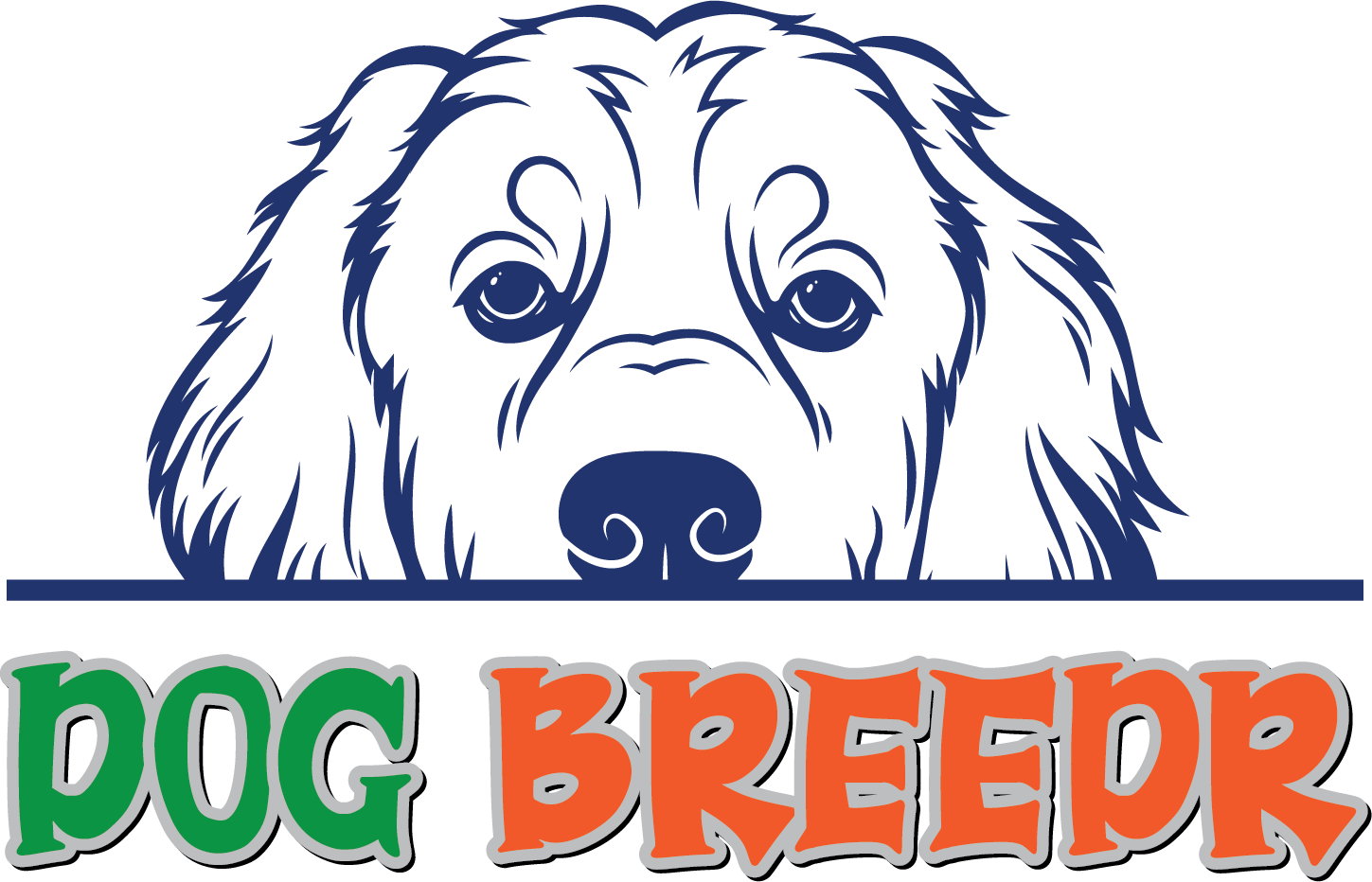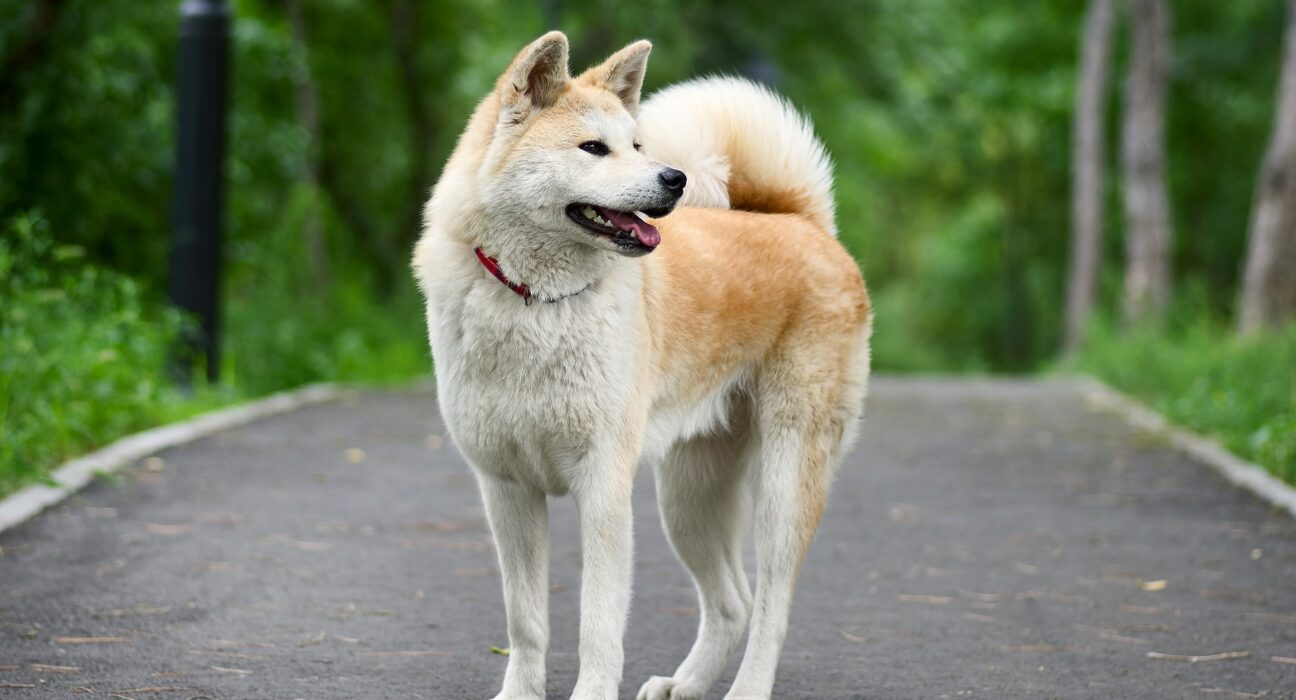The Akita is a large and powerful breed of dog native to Japan. It is a loyal and devoted companion whose alertness, courage, and strength make them an excellent guard dog.
The Akita is considered one of the national treasures in its homeland, and it has gained international popularity as a beloved pet for many families worldwide.
Akita Physical Characteristics
The Akita is a strong, muscular breed with a double coat that can come in any color or combination of colors.
Its head is broad, with erect ears set high on the head. Its eyes are small, dark-colored, and almond-shaped.
The muzzle tapers from broad at the base to narrow along the top line of its nose. The dog’s neck is strong, and its chest is deep.
Its tail curves over its back in a graceful arch. The breed has an overall muscular build that gives it an athletic appearance.
Akita Personality
Akitas are known for their loyalty, devotion, and intelligence. They’re not typically aggressive and can be very affectionate with their owners; however, they need proper socialization as puppies to ensure they remain friendly and outgoing throughout adulthood.
They have a natural protective instinct that makes them great guardians of their family’s home or property.
These dogs are also highly independent thinkers and require consistent training, so they learn early on who the pack leader is in the household.
Akita Health Issues
The Akita is a large, strong breed of dog that originated in Japan. They are renowned for their loyalty and courage and have been used as guard dogs, hunting dogs, and companions for centuries. However, their size makes them prone to certain health issues that owners must be aware of.
· Hip Dysplasia
One of the most common concerns is hip dysplasia. This hereditary condition causes malformation of the hip joint, leading to pain and lameness in one or both hind legs.
A veterinarian can diagnose hip dysplasia through X-rays and blood tests. Treatment may include medication, physical therapy, weight management, or surgery.
· Eye Problems
Another issue commonly seen is eye problems. These can range from minor irritations to more serious conditions such as glaucoma, cataracts, and progressive retinal atrophy (PRA). Akita owners must check their dog’s eyes regularly with a veterinarian to detect any problems early.
· Skin Allergies
Finally, these dogs may also suffer from skin allergies. This could be caused by environmental factors like dust mites or grasses, or it could be food-related.
Symptoms of allergies in an Akita include excessive scratching, redness, inflammation of the skin, and bald patches.
Treatment usually involves changing the Akita’s diet if the allergy is food-related or medication if necessary.
Owners of these dogs should be aware of these potential health risks so they can identify them early and seek appropriate treatment.
Regular visits to the vet are also important, as many issues can be prevented or managed with proper care. Akitas can live long and happy lives with love, patience, and dedication.
Akita Care
The Akita is a large, powerful dog that requires an experienced owner who can provide them with the proper training and exercise.
They have a strong prey drive, so it’s important to socialize your Akita early. Early socialization will help prevent aggressive behavior towards other dogs or animals.
Your dog should get plenty of exercises daily, including walks and jogs. Without proper exercise, they can become bored, which can lead to destructive behaviors.
It is also important to provide them with mental stimulation through interactive games such as fetch or tug-of-war.
Akitas are known for their protective nature, so it is important to set boundaries and give them rules early on.
This breed needs clear and consistent guidance to be a well-behaved pet. Training should start from day one and should be done in a gentle but firm manner.
Grooming is an important part of Akita care, and they need regular brushing to maintain their coat’s health.
It is also important to keep their ears clean and check them regularly for any signs of infection. Their nails should also be trimmed regularly, and their teeth should be brushed at least twice a week.
These dogs can live up to 10-12 years, so it is important to provide them with proper nutrition. They require protein-rich diets low in fat, and treats should only be given occasionally as Akitas tend to become overweight quickly.
Akita Training
When it comes to training an Akita, there are a few important steps that you should follow. These steps will help ensure that your dog is well-behaved, obedient, and happy.
· Establish Yourself
The first step in training is establishing you as the pack leader. You want your Akita to understand that you are in charge and will be respected.
To do this, remain calm, consistent, and firm with your commands during training sessions. This means giving clear commands without raising your voice or being overly harsh. It also helps to reward good behavior with treats or positive reinforcement when appropriate.
· Socialization
The second step of training is socialization. Socializing your dog from a young age can help them become comfortable and confident in new situations.
Try taking your Akita on walks, visiting friends and family members with dogs, or even going to the dog park. This will help your dog learn how to interact appropriately with other people and animals.
· Obedience Training
The third step is to start obedience training. Teaching basic commands such as sit, stay, and come when called is essential for an obedient pet.
Be sure to use positive reinforcement techniques during these lessons so that your Akita knows it is being rewarded for good behavior rather than punished for bad behavior.
· Consistent Exercise
Finally, consistent exercise is important in keeping your Akita physically and mentally healthy. Regular walks throughout the day help keep your pup engaged and active while strengthening the bond between you and your furry companion.
Following these steps can help ensure that your Akita is well-behaved and obedient. With patience, consistency, and a little love, you will have a happy pup in no time.
The Akita is an intelligent and loyal breed that loves to be around its family. With proper training and care, it can make a wonderful companion for many years to come.
Conclusion
The Akita is an adaptable, loyal, and devoted breed of dog that makes a great addition to any home. With the right amount of exercise, mental stimulation, and love, these affectionate dogs will bring lots of joy.
Although they may have some health issues that require extra attention, they can enjoy long and happy lives with the right care. If you’re looking for a loving companion who will always be by your side, look no further than the Akita.

